Students of color reflect on code-switching at Archer
The upper school watched the film “The Hate U Give” during the annual Archer Diversity Conference on Jan. 29. The film sparked conversations both on and off campus. At Archer, clubs such as BSU and Hermanas Unidas hosted meetings a few days after the conference, while in the media, an Atlantic article called “The Complexity of Black Girlhood Is at the Heart of ‘The Hate U Give'” praised the film. One of the most discussed topics of the film was how the protagonist, Starr Carter, portrays code-switching.
In the film, Starr goes back in forth between two worlds: the poor, black neighborhood she lives in and the wealthy, predominantly white private school she attends.
The dictionary defines code-switching as alternating or shifting between two languages and behaviors to adapt to an environment, but the film explores more “obvious” and “external” changes and comments on “identity politics” as well, said writer Tanisha C. Ford.
Junior Leslie Castaneda said she had an “emotional” response to the film.
“It was the first time that I watched it, but I did read the book,” Castaneda said. “I think seeing it on the screen did have an impact on me. I did cry several times watching it, just because there are so many things that Starr goes through that I really resonate with.”
The Oracle sat down with four students of color to discuss their experiences with code-switching at Archer.
Defining code-switching
Freshman Destiny Morado initially defined code-switching as something that everybody does “no matter what.”
“[Code-switching] is more of an adaptation in learning where you are, learning how to act, knowing how to talk to people in which ways and exactly what to say,” Morado said.
Freshman Andrea Ramirez echoed these feelings and said she code-switches with multiple different groups of people.
“I wouldn’t talk to my parents like I talk to my friends or my sister, so I think that code-switching is just something that happens every day with a lot of people,” Ramirez said. “Whether you notice it or not, it’s just something we do.”
Diversity trainer and speaker Rosetta Lee said is important to distinguish between code-switching and cosmopolitanism. She explained that cosmopolitanism is a skill set that “everyone needs to have” in order to, for example, travel internationally or be a good houseguest. Lee said that cosmopolitanism does not judge an individual’s culture to be good or bad, but recognizes that “it’s just different.”
In contrast, she defines code-switching as adopting “different cultural mannerisms or behaviors” in order to be “better accepted” in a given situation.
“Code-switching, in my mind, is something else…if I don’t do certain aspects of code-switching I am perceived as impolite or uneducated or rude, or I am even deemed unsafe and there are serious consequences,” Lee said. “You [adapt] to be appropriate to a different context. Code-switching said there is a hierarchy, there is a better way of being, so if you don’t show up that way, you are less than.”
Code-switching as a student of color at Archer
Although code-switching may be something many people do in their everyday lives, it impacts students of color in a specific and different way. Senior MaeLea Williams described it in her instance as not being “too black.”
“I think myself, and people of color in general, are sort of expected to learn how to code-switch in order to…assimilate to certain environments, but I don’t think it’s something we have to do. It has sort of morphed into something [society says] we have to do,” Williams said. “I don’t think it started that way; I think it [started as] a way of protecting ourselves.”
Similarly to many students of color at Archer, Ramirez said that her transition to Archer in the ninth grade and code-switching came “hand in hand.” Castaneda and Morado have had similar experiences.
“There are a lot of differences, mostly coming from a not-so-high-end or elite neighborhood or school. I came from a charter school in my district, and there weren’t many white people in my neighborhood. I came from a mostly Hispanic neighborhood with a very high percentage of people of color, which is pretty different from Archer,” Castaneda said. “[Code-switching] can be something that’s just very natural, but in my instance, it was more so a bit of both [positive and negative].”
Lee explained that many independent schools fail to acknowledge the culture that has been created within their schools throughout the years and questions if those cultures are “conducive” for students of color.
“Whether we want to acknowledge it or not, independent schools, the history and founding of a lot of independent schools were to create…homogeneity, elitism, isolation and things like that,” Lee said. “Strong cultures were built and they were modeled after often upper class, often white mainstream, often patriarchy.”
Lee further explained the impact this culture has on students of color with an analogy. She said to imagine a “beautiful” pool where fish are “thriving.” Birds and rabbits are then invited to the pool. Lee said this brings up the question: “Why are the birds and rabbits not thriving?”
“You never access the fact that they have the power of flight and speed on their end, so it sets up this dynamic so those folks are always seen as less than when in reality, in a different context, they would bring strength that doesn’t exist in that community… if we really want folks from different backgrounds that we invited to thrive, then we have to do something about the water.”
— Rosetta Lee, diversity trainer and speaker
“And I’m like, ’cause its a pool. You actually invited high flyers and fast runners, but if you don’t change the pool, then you’re demanding that they constantly learn how to swim. Some folks can, but not everyone can or it takes longer for you to swim, “ Lee said. “You never access the fact that they have the power of flight and speed on their end, so it sets up this dynamic so those folks are always seen as less than when, in reality, in a different context, they would bring strength that doesn’t exist in that community… if we really want folks from different backgrounds that we invited to thrive, then we have to do something about the water.”
The impact on students
Students at Archer have reacted differently and had different experiences with code-switching. Morado said that it has affected her in a positive way and helped her find more of who she “truly” is.
“I come from two different places. I’m growing up in South Central LA and then coming to Brentwood, which is really different, especially different environments. Growing up in what I guess you call ‘the hood’ is completely different from meeting and interacting with people every day who come from very wealthy families or great backgrounds, ” Morado said. “Code-switching allows me to be able to show people that where I come from doesn’t determine who I am or what I can do in the future.”
Williams, who came to Archer in middle school from a predominantly white elementary school, said she didn’t have to code-switch “as much” when she got to Archer. At her former school, she “wanted to be white so bad” and recalled feeling like she couldn’t say certain things that were usual “black terms” or wear her hair in a certain hairstyle.
“[Hair is] definitely a way of assimilating. I wouldn’t wear my hair in braids to school because I wanted to not stand out too much because…there were two black people in my class, and I was one of them,” Williams said.
However, alternating between two environments like this does have its negative effects. In the article, “When Minority Students Attend Private Elite Schools,” Judith Ohikuare wrote that students of color in independent schools particularly feel that code-switching negatively impacts their success and self-esteem.
“Simply being admitted doesn’t guarantee a smooth or successful educational journey,” Ohikuare wrote.
Castaneda related to this to a certain degree and has felt the negative effects of code-switching. She noticed these changes when she first arrived at Archer in middle school. She described herself before Archer as “excited,” “open-minded” and ready to pursue activities such as student council.
“There was just something — like I just shied down, and I don’t know if it was just because I was like, ‘Oh there [are] so many people here that I don’t know or people that don’t look like me,’ but it just kind of happened,” Castaneda said. “At that point, I was thinking to myself, ‘Is this who I’m just going to be? This shy little girl?’ I think I’ve made some progress now… but I do see myself backing down from certain conversations or holding back.”
Lee explained what Castaneda may be feeling by saying that code-switching out of “survival” can cause “psychic damage” to a student. She said that students worry about “slipping” with their code-switching and having to deal with the social and academic consequences. Lee compared this to cosmopolitanism when traveling abroad, noting that if someone “slips up” in that environment, it can easily be dismissed. She adds that, unlike cosmopolitanism, students of color code-switch on a daily basis, which is concerning.
“If that’s the level of psychic energy that students of color are spending, that’s psychic energy that’s not going towards math or trying to take a healthy intellectual risk or trying a new sport,” Lee said.
When asked about Lee’s response, Castaneda said she does feel the “pressure” and struggles Lee highlights.
“It was difficult at first to just adjust to [Archer,] and I did find myself feeling exhausted after coming home from school and really just trying to take a breath,” Castaneda said. “There have been a few instances in which I had just been emotionally exhausted from not necessarily putting up a front, just trying to avoid being seen in a certain way just because of my physical appearance or things that you can see at first glance.”
The complexity of code-switching
All these students agree that code-switching is not just “pretending” or “acting” like somebody else. Ramirez said you should “watch out” when making changes, but that she has largely retained her identity. Williams agreed.
“I don’t think it’s acting, I think it is part of your identity. I don’t think when I code-switch I’m necessarily changing who I am. I just think it’s a part of myself that I don’t necessarily feel the need to express everyday or when I’m just having casual conversations with people I am comfortable with.”
— MaeLea Williams, senior
“I don’t think it’s acting. I think it is part of your identity. I don’t think when I code-switch I’m necessarily changing who I am, “Williams said. “I just think it’s a part of myself that I don’t necessarily feel the need to express everyday or when I’m just having casual conversations with people I am comfortable with.”
Code-switching for these students also happens in places other than Archer. Ramirez said it is apparent when she hangs out with her friends from her former school and Morado said she sees it when spending time with family.
“Even going home on the weekends and visiting my grandparents or talking with cousins and I talk about Archer; my cousins going to public school and then me going to private school — it’s very different. Being able to kind of talk about it sometimes feel like boasting, “Morado said. “I do sometimes downgrade Archer just to make them feel comfortable with it and not make them feel bad.”
Lee said that she does see the positives of code-switching because it allows people to “better function” in a different setting or be more “polite,” but she does think that there is a line that must be drawn and acknowledged.
“We should minimize [code-switching] as much as possible because again, it keeps people from being and contributing their very best,” Lee said. “Adopting a wholesale cultural way of being that makes the school culture feel like water to some and a real burden to others — that’s an unfair, inequitable situation the school sets up, so in those respects, code-switching should be minimized as much as possible.”
The Oracle plans on further exploring the way adults at Archer either experience code-switching themselves or support students who code-switch on campus in future articles.

Celeste Ramirez joined the Oracle as a columnist in 2017 and is now the Multimedia Editor. Her column focuses on diversity at Archer, highlighting the...





![Freshman Milan Earl and sophomore Lucy Kaplan sit with their grandparents at Archer’s annual Grandparents and Special Friends Day Friday, March 15. The event took place over three 75-minute sessions. “[I hope my grandparents] gain an understanding about what I do, Kaplan said, because I know they ask a lot of questions and can sort of see what I do in school and what the experience is like to be here.](https://archeroracle.org/wp-content/uploads/2024/03/grandparents-day-option-2-1200x800.jpg)













































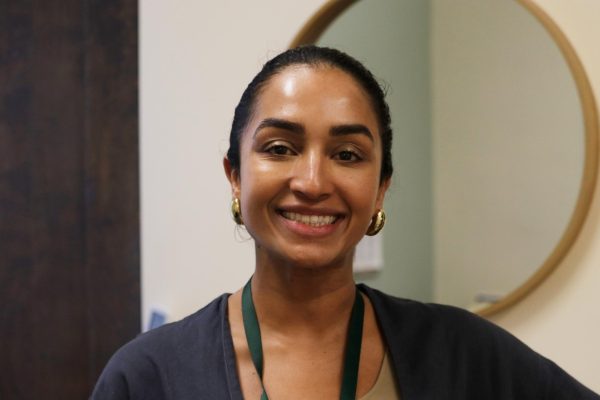






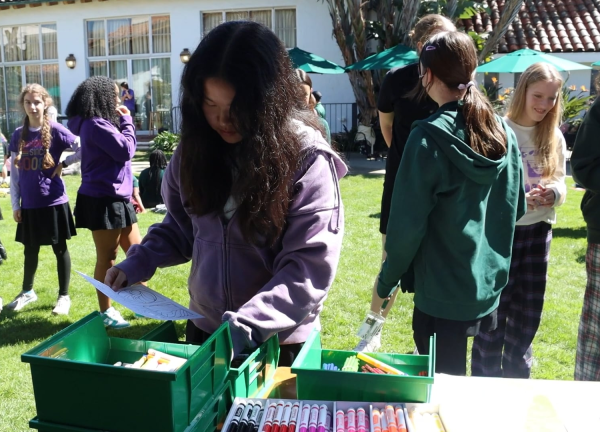

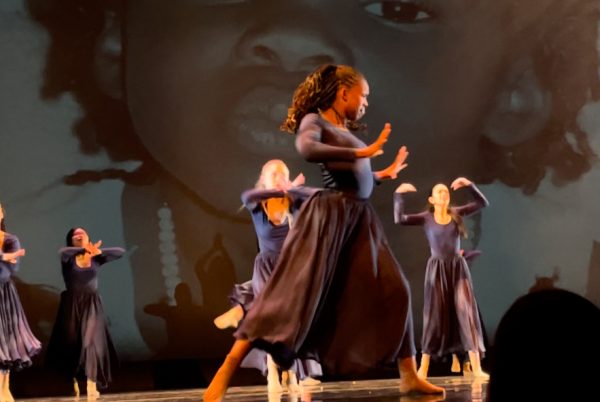

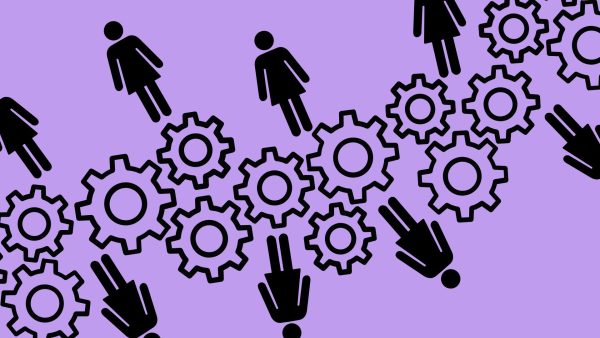
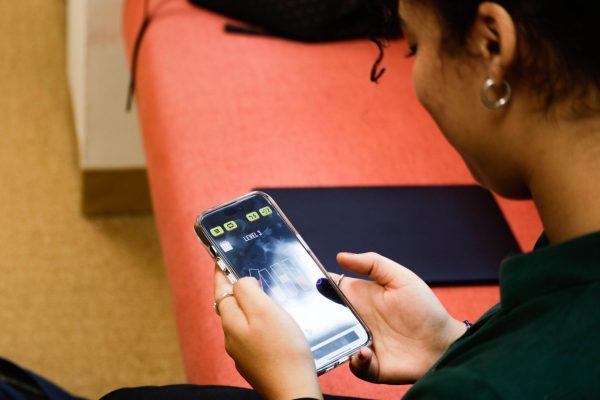
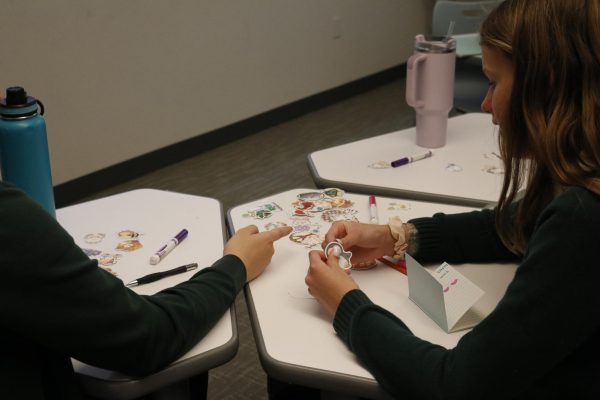

Anonymous • Dec 2, 2019 at 11:29 am
I feel like this article was really good but you only interviewed one black person. All of the other people were latinx. I feel like if you want to make an article about code switching and keep mentioning black people then interview more of the. I also feel like you should have interviews younger kids like kids in 6th-8th grade because being part of them and then reading this article makes me upset because I can’t find any windows in this article. It was a good article but it could be improved.
Anonymous • Sep 14, 2019 at 5:46 pm
Black people/students, for whom “code-switching” was termed, should have been interviewed for this article. Code switching has been a part of Black culture for centuries due to their UNIQUE experience in this country. “Students of Color” homogynizes the experience. BLACK students have their own experience. It is not the same as every other so-called “person of color”.
Celeste Ramirez • Sep 18, 2019 at 5:26 pm
Hello and thank you for your response to this article. I think your comment is very valid and it is not something I take lightly. Additionally, to address your concern, when writing this article I intended to have a diversity of sources, including two black students. It is also important to recognize that this article is about the topic of code-switching on my school campus specifically. These student’s stories stand out to me as a student here and share a bit about going to a predominantly white school. I use the term “students of color” in this article and many of my other articles in order to recognize that this is a shared experience in my school community. I do think black students have a unique experience with code-switching and it was not my intention to diminish that at all.
Lena Jones • Jun 9, 2019 at 10:01 pm
Celeste, this article jumps from the page and demands the reader’s attention! From unpacking the definition to focusing on the physical exhaustion that might come with code-switching daily, I found myself reevaluating my own life over and over. Lately, I’ve found myself choosing NOT to code-switch more often, but that has had to be a conscious decision on my part. It’s interesting to think about how natural code-switching can be, as Destiny Morado and Andrea Ramirez both pointed out.